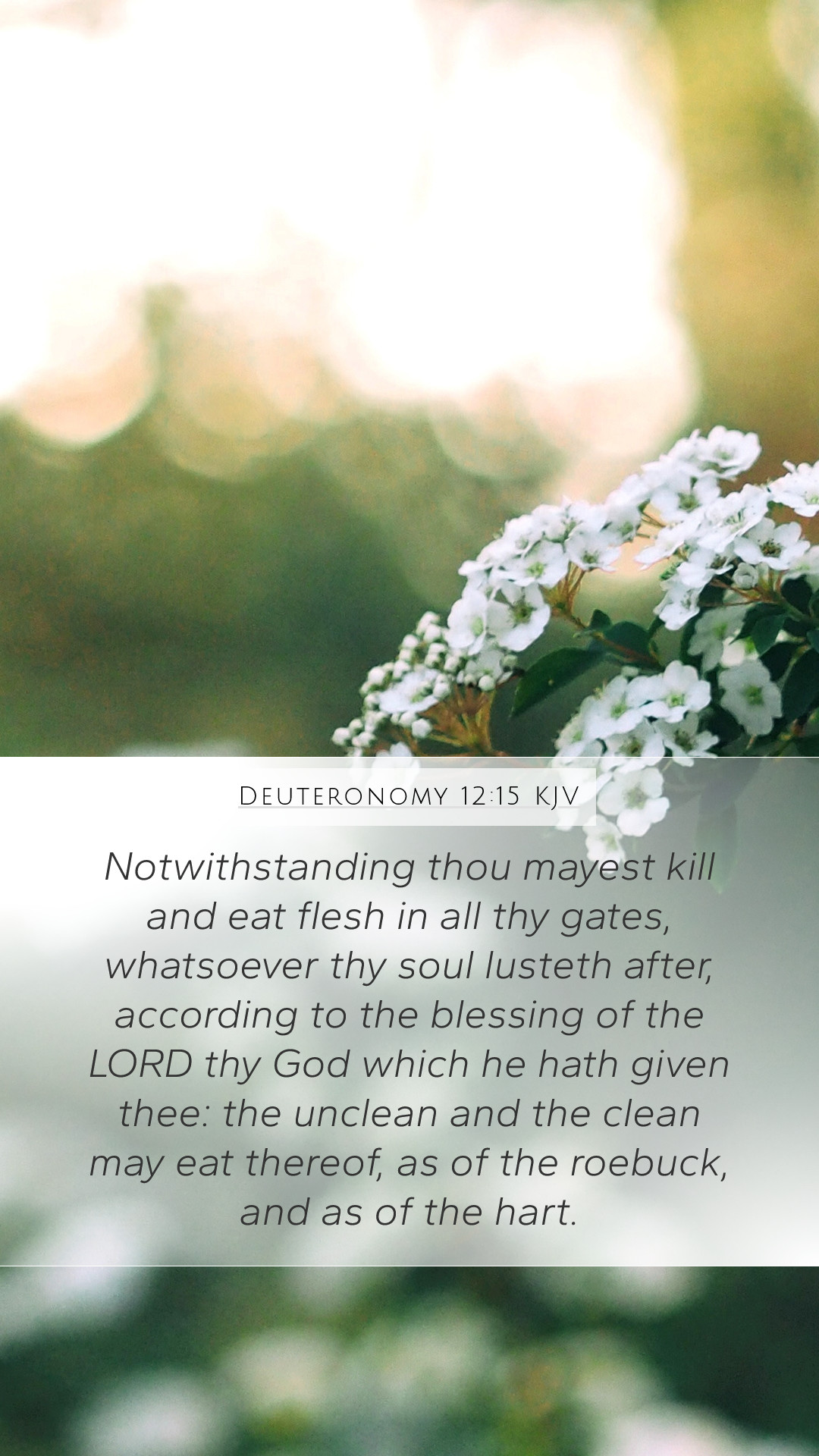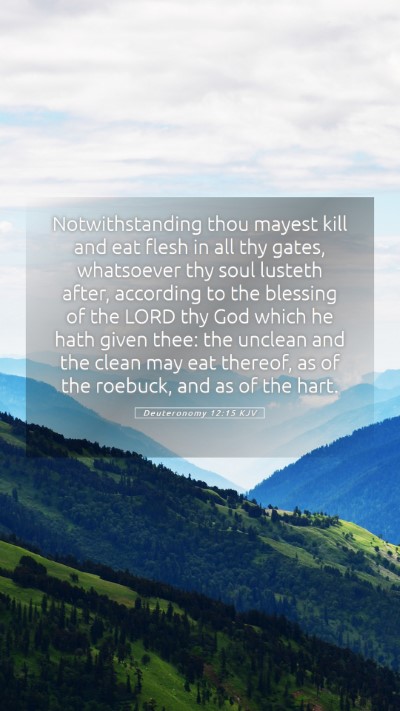Understanding Deuteronomy 12:15
Bible Verse: Deuteronomy 12:15
Meaning: This verse provides insight into the dietary laws established for the Israelites, particularly emphasizing the permission to eat from their herds and flocks, as well as the approach to sacrifices.
Bible Verse Commentary
The interpretation of Deuteronomy 12:15 can provide rich Bible study insights into God's provisions for His people. The verse states:
"Nevertheless, you may slaughter and eat meat within all your gates, whatever your soul lusteth after, according to the blessing of the Lord thy God which he hath given thee: the unclean and the clean may eat thereof, as of the roebuck, and as of the hart."
Context of the Verse
This verse occurs within a passage that details the proper worship practices in the Promised Land. The Israelites were transitioning from a nomadic lifestyle to one that would be more settled and agrarian. Understanding Scripture requires knowledge of the cultural and historical context of the period.
Insights from Commentaries
-
Matthew Henry:
Henry points out that this permission highlights God's grace, allowing His people to enjoy their blessings without the stringent rules that accompany sacrificial rites. The emphasis on both the clean and unclean eating meat signifies inclusivity in God's provisions.
-
Albert Barnes:
Barnes elaborates on the significant shift this represents in Israelite worship, illustrating a move towards personal worship and flexibility in how sacrifices and food are approached. This suggests God desires a personal relationship that allows for choice under His guidelines.
-
Adam Clarke:
Clarke suggests that this verse emphasizes the importance of blessings received from God. Eating meat, as stated, is not merely for sustenance but is an act of acknowledging and enjoying God's goodness, even when it shifts from formal offerings to personal enjoyment.
Spiritual Significance
The spiritual implications of Deuteronomy 12:15 extend far beyond dietary laws. This acknowledgment of God’s provision in the everyday life of His people reiterates the importance of recognizing His blessings in all areas of life. It invites reflection on how believers can appreciate God's generosity, live within divine guidelines, and be inclusive to all who follow His laws.
Application in Daily Life
Applying this verse to daily life involves recognizing the freedom we have under grace while still honoring God’s commands. It encourages believers to make choices that reflect gratitude for the blessings provided by God, as well as an awareness of how those choices affect others, particularly in community settings.
Related Bible Cross References
- Leviticus 11:1-47: Dietary laws of clean and unclean animals.
- Deuteronomy 12:20-22: Instructions on eating meat and sacrifices.
- 1 Timothy 4:4: Acknowledgment that all created things are good if received with thanksgiving.
Conclusion
Deuteronomy 12:15 serves as a reminder of God’s thorough understanding of human needs and desires. By studying this verse and incorporating the insights from various public domain commentaries, one can develop a deeper understanding of Bible verse meanings and interpretations. Such knowledge is invaluable for enhancing Bible study groups, online Bible study sessions, and personal studies alike. Emphasizing inclusivity in the church reflects the heart of God, concerned for the well-being and spiritual nourishment of His people.


